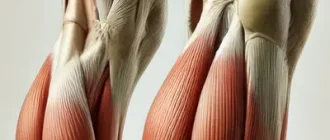Experiencing chest pain can be a cause for concern, regardless of its cause. Whether it’s gastric pain, muscle pain, gas pain, or even acidic pain, finding relief is essential for your well-being. In this blog post, we will explore five effective ways to help reduce chest pain, enabling you to regain comfort and peace of mind.
- Manage Gastric Pain:
Gastric pain, often associated with acid reflux or indigestion, can cause discomfort in the chest. To alleviate this type of pain, try:- Eating smaller meals: Consuming smaller, more frequent meals throughout the day can prevent overloading your stomach, reducing the chances of gastric pain.
- Avoiding trigger foods: Certain foods like spicy and fatty dishes, citrus fruits, and carbonated beverages can exacerbate gastric pain. Identify your trigger foods and steer clear of them to prevent unnecessary discomfort.
- Elevating the head while sleeping: Raising the head of your bed by a few inches can help prevent acid reflux during sleep, reducing the likelihood of waking up with chest pain.
- Soothe Muscle Pain:
Muscle strain or injury can lead to chest pain. To help alleviate this type of pain, consider the following:- Applying heat or cold packs: Applying a heating pad or a cold pack, depending on the nature of the pain, can help soothe sore muscles, reducing discomfort in the chest.
- Doing stretching exercises: Gentle stretching exercises that target the chest muscles can alleviate tension and promote healing. Consult a physical therapist for appropriate stretches.
- Taking over-the-counter pain relievers: Nonsteroidal anti-inflammatory drugs (NSAIDs) like ibuprofen or acetaminophen can provide temporary relief from muscle pain. Remember to follow the recommended dosage and consult a healthcare professional if needed.
- Relieve Gas Pain:
Gas build-up in the digestive system can cause sharp, stabbing chest pain. Here’s what you can do to find relief:- Practicing deep breathing exercises: Deep breathing can help relax your diaphragm and abdominal muscles, alleviating gas pain and reducing chest discomfort.
- Avoiding carbonated drinks and gas-producing foods: Limiting the intake of carbonated beverages, beans, lentils, broccoli, onions, and other gassy foods can help prevent excess gas and minimize associated chest pain.
- Taking over-the-counter medications: Anti-gas medications containing simethicone can be effective in reducing gas pain. However, consult your healthcare provider before using any medication.
- Alleviate Acidic Pain:
Excessive stomach acid can cause a burning sensation, known as acidic pain. Consider the following solutions:- Maintaining a healthy weight: Excess weight puts pressure on the stomach, leading to increased acid production. By maintaining a healthy weight, you can reduce the occurrence of acidic chest pain.
- Avoiding trigger foods: Just like in gastric pain management, steering clear of trigger foods like spicy and acidic items can minimize the chances of experiencing acidic pain.
- Elevating the head during sleep: As mentioned earlier, elevating your head while sleeping can prevent acid reflux, which contributes to acidic chest pain.
- When in Doubt, Seek Medical Attention:
While the aforementioned strategies can provide relief, it’s important to remember that chest pain can sometimes indicate a more serious underlying condition. If your chest pain is severe, persistent, or accompanied by other concerning symptoms like shortness of breath, dizziness, or radiating pain, seek medical attention immediately.
Reducing chest pain, whether it be gastric, muscle-related, gas-related, or acidic, involves making lifestyle changes, managing diet, and adopting relaxation techniques. By implementing these strategies and seeking appropriate medical advice when needed, you can take control of your chest pain and improve your overall well-being.
About the Author
Reyus Mammadli is the author of this health blog since 2008. With a background in medical and biotechnical devices, he has over 15 years of experience working with medical literature and expert guidelines from WHO, CDC, Mayo Clinic, and others. His goal is to present clear, accurate health information for everyday readers — not as a substitute for medical advice.







